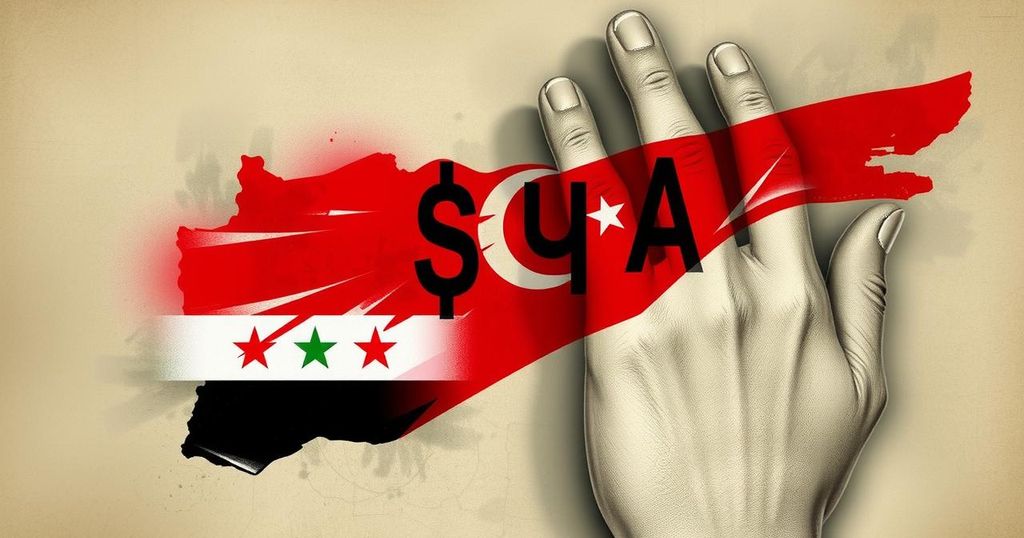The article examines Oman’s response to the recent regime change in Syria, where the Gulf states, especially Oman, are adapting to the absence of Bashar al-Assad. While Oman maintained consistent diplomatic ties with Assad, public opinion is divided on the regime’s fall. The rising tensions with Israel and shifting dynamics in the region demand a careful balance from Oman, focusing on stability and non-interference as it navigates relationships with the new ruling entities in Syria.
The recent overthrow of Bashar al-Assad on December 8, which ended over six decades of Baathist rule in Syria, has stirred a pragmatic response from the Gulf Cooperation Council (GCC) states, particularly in Oman, which maintained more stable connections with Damascus than its counterparts. While the GCC states engage with the new Islamist rulers to ensure regional stability, Oman is reassessing its stance on the evolving political landscape. Muscat is aligning its foreign policy in line with a “friends-of-all” approach yet remains guarded in its engagements following the geopolitical shift.
Oman’s historical position during the Syrian civil war demonstrated its commitment to diplomacy. Throughout the conflict, Oman engaged with the Assad regime, distinguishing itself from other GCC members who sought to isolate the government. The Sultanate reinstated its ambassador in Damascus in 2020 and subsequently welcomed Assad in 2023. This consistent engagement has positioned Oman as a pivotal player in advocating for Syrian normalization in the Arab world. Now, with Assad’s regime fallen, Oman seeks to navigate this new reality while upholding its principles of equidistance and non-intervention in regional affairs.
Public sentiment in Oman reflects a complexity concerning the regime change in Syria. Three primary narratives have emerged among citizens regarding the implications of Assad’s fall. Some express support for the Iran-led axis, viewing Assad’s ousting as detrimental to regional stability. Others celebrate the revolution against Assad’s tyranny, seeing a potential for a new democratic era under HTS leadership. A third narrative fears the replacement of secular tyranny with a more rigid Islamist governance. This divergence in perspectives showcases the various ideological landscapes in Oman despite shared sentiments against Israeli aggression in Syria post-Assad.
The rising tensions in the region, especially regarding Israel’s military activities in Syria, have ignited a unified Omani anger towards Israeli policies, reflecting a broader trend of increasing anti-Western sentiment within Oman. Public figures, including Grand Mufti Sheikh Ahmad bin Hamad al-Khalili, have criticized Israel’s actions while celebrating the Syrian people’s achievement in regime change without bloodshed. Oman has become one of the strongest critics of Israel within the GCC since the escalation in Gaza, significantly altering its historical stance towards Israel.
Oman’s official narrative now emphasizes the importance of respecting Syria’s sovereignty while seeking to ensure political stability. Maintaining a distance from Syria’s internal conflicts, Oman is leveraging its non-interventionist foreign policy to help facilitate peace processes. As the region witnesses ongoing volatility, the Sultanate is focused on supporting a political transition led by Syrians to ensure lasting peace and territorial integrity across the region.
The article discusses the implications of the recent regime change in Syria following the abrupt downfall of Bashar al-Assad. It highlights how Gulf Cooperation Council (GCC) states, particularly Oman, are navigating the post-Assad landscape, emphasizing Oman’s unique diplomatic stance throughout the Syrian civil war. The Sultanate’s historical engagement with Assad’s regime contrasts with other GCC members and positions Oman as a key player in fostering Arab relations with a new governing body in Syria. The public reaction in Oman reflects a variety of perspectives on the regime change, underscoring the complexities of Omani societal narratives in relation to broader regional themes, particularly regarding Israel and internal Arab dynamics.
In conclusion, the recent changes in Syria necessitate a pragmatic approach from Oman, affirming its historical stance of diplomacy and non-interference. The varied narratives within Omani society on Assad’s downfall reflect broader ideological divisions but are unified in their critique of Israeli actions post-October 7. As Oman positions itself to navigate these changes, its commitment to seek peaceful resolutions and support for Syria’s territorial unity remains paramount. The implications of Assad’s ousting may continue to shape Oman’s foreign policy directions in the volatile Middle East.
Original Source: arabcenterdc.org






